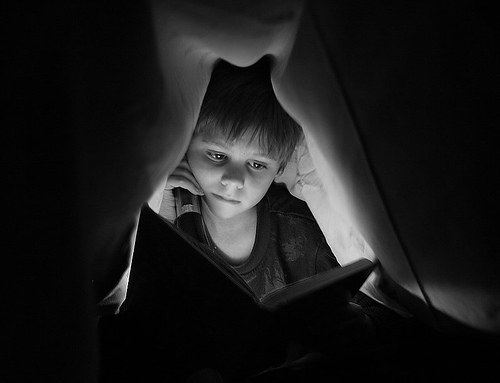My son and I sat down to watch a classic movie with a PG rating – Beetlejuice.

Photo Credit: Muotoilla * via Compfight cc
I had fond memories of the 1988 movie – the Tim Burtonesque feel, the comic genius of Michael Keaton, and the Banana Boat Song. And it was not even a PG-13 film like Iron Man or The Avengers – both of which he saw and I had no problem with.
I had forgotten a few critical scenes, words, and concepts my son might not have been ready to take in. I had forgotten a PG rating in the 1980s could be just this side of an R rating. Watching it again, I wonder if Beetlejuice should have been rated PG-13.
I began talking with other dads about this. There was the one who showed his son The Bad News Bears having forgotten about the amount of language and drinking in that PG film.
We have also talked about our tendency, especially with our boys, to afford more leniency with violence than we do sex and nudity. How can we show them Braveheart and The Patriot because of the overarching story and message and turn our heads at the brutality, violence and blood?
I have another friend who will allow for a moderate level of violence in the media his son consumes, but draws the line when the story involves the mistreatment and disrespect of women. But even those story lines can provide great opportunity for conversation about the consequences of being a jerk toward women.
So, what is the right answer? Do we let the Motion Picture Association of America decide what our kids can watch based on their age and MPAA guidelines? Do we say “no” to everything with adult content? Do we shelter our kids as long as we can?
I do not have all the answers and, frankly, have quite a few questions.
Even if I censor the content at home, my son still goes to school, still visits friends (with older siblings), still rides in the car and sees billboards for local adult boutiques and Captain Morgan Rum.
I want to hear what you think, but here is my attempt to develop some boundaries:
- Stay engaged in your kids’ lives and know what media they consume. This seems like the first, logical step. Ignorance is not bliss.
- Educate yourself on the content they want to consume. I routinely use sites like IMDB, Kids-In-Mind, and Common Sense Media to get reviews and recommendations about the content my son consumes. He usually knows which films I will say “no” to, but often I need more information – especially if I have not seen it before and want a sense about what he will see. Some of the sites even give you topics to discuss following the movie.
- They probably know what you watch, so do not be surprised if they think the same content is OK for them. In the do-as-I-say-not-as-I-do category, our kids take cues from us, so if you do not want them watching horror movies, you may want to reconsider your Friday the 13th movie marathon. They can see the “recently watched” shows on Netflix just like you can.
- Engage in the discussion with your kids. I remember watching a movie called Phantasm at a friend’s house when I was in late elementary or early junior high. For whatever reason, I could barely go get the mail in broad daylight for several days after seeing it. I was just waiting for the Tall Man to jump out from behind a tree or show up behind me when I looked in a mirror. I have told my son about that experience, and it may have tempered his desire to watch a horror movie…for the time being. Be honest about why you set boundaries on the movies they watch and let it be a conversation, not just a lecture.
What limits have you set on movie/TV content for your kids? How do you approach the subject with them?







